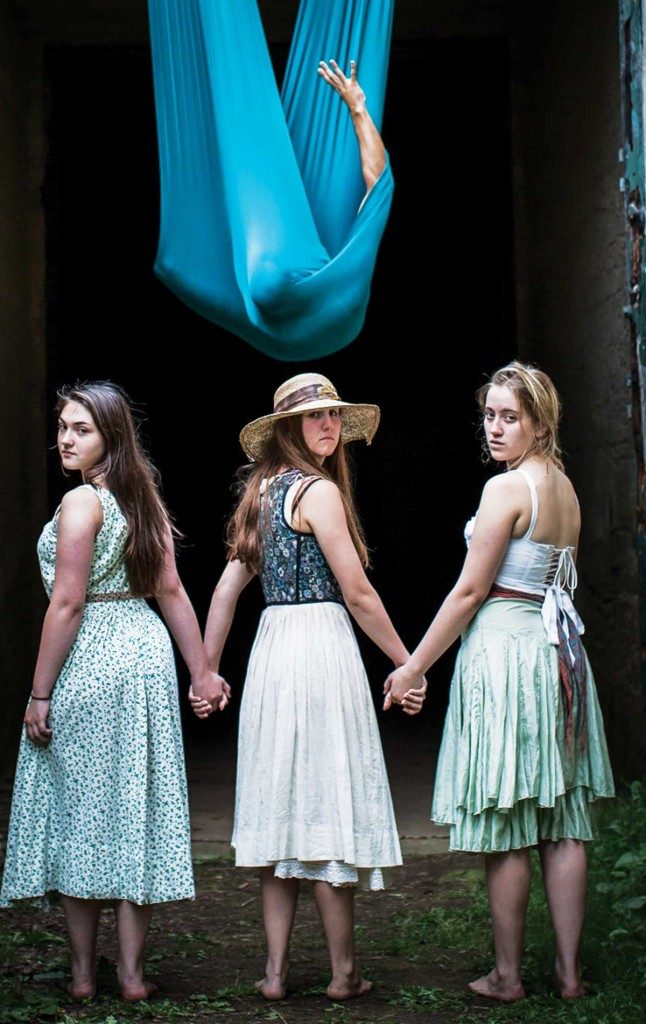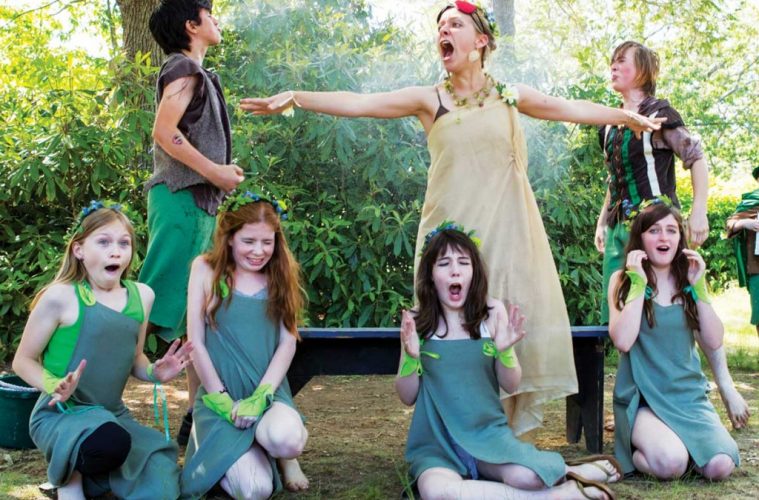Nature takes center stage at Theater in the Open
Edward Speck, artistic director of Theater in the Open, remembers clearly the first time he entered the company’s practice space at Gate Lodge in Maudslay State Park, cluttered now as then with costumes from past and future productions, props and masks, and a mismatched selection of well-worn chairs, stools, and sofas. He was 12 years old, auditioning for a part in the company’s holiday offering of “A Christmas Carol.” Speck didn’t get the part, but he did get an immediate desire to be a part of the action. “I remember thinking, ‘Man, this is where I need to be,’” he recalls.
Eighteen years later, the Amesbury native lives upstairs, while downstairs plays host to Theater in the Open’s lively and very popular summer camp, as well as the planning and rehearsal space for the seasonal roster of plays.
“There are 20 people between the ages of 15 and 25 in my house every summer morning,” Speck says, referring to just the staff. “Things can get a little crazy.”

Theater in the Open’s version of T.S. Eliot’s “The Waste Land”
Theater in the Open has no formal performance space—Speck lets the grounds of to install granite trail markers that call attention to local points of interest, and a companion website lists 12 downloadable walking tours, with a mobile app coming soon. “It will be our answer toBoston’s Freedom Trail,” Holaday says. Looking back isn’t N ewburyport’s only focus—it has 1.5 million square feet of occupied industrial space, including the Newburyport Clean Tech the park dictate the staging of his plays. So, it can be a 10-minute stroll from the parking lot to the staging area, flags leading audience members to wherever the play will be performed. While this dramatically reduces costs, it requires more than your average suspension of disbelief from the audience. “A tree becomes a door, the pirate ship is not on the high seas, and the actors may joke about it,” Speck says. “We have fun with the audience. We pretend together.”
Plays have been performed on the foundation of the main house, along ruined walls and gardens, and even in the estate’s empty pool. In fact, the greatest acting experience Speck ever had was in that pool. During a scene from The Tempest, lead character Prospero called for thunder and lightning, and the skies responded.
“Everyone got poured on, but no one wanted to leave,” Speck recalls. Audience and cast finished the performance drenched, but all knew they had experienced something special indeed. Even when nature doesn’t respond as dramatically, the outdoor setting can bring meaning and intimacy to a performance. When the company performed a play based on T.S. Eliot’s poem “The Wasteland,” the park’s grounds on the former Maudslay estate were so rife with possible settings, like overgrown flower beds and architectural ruins, that the troupe moved through the park and the audience followed along.
“The veil is much thinner,” Speck says of these outdoor events. “The performance becomes almost conversational.”

